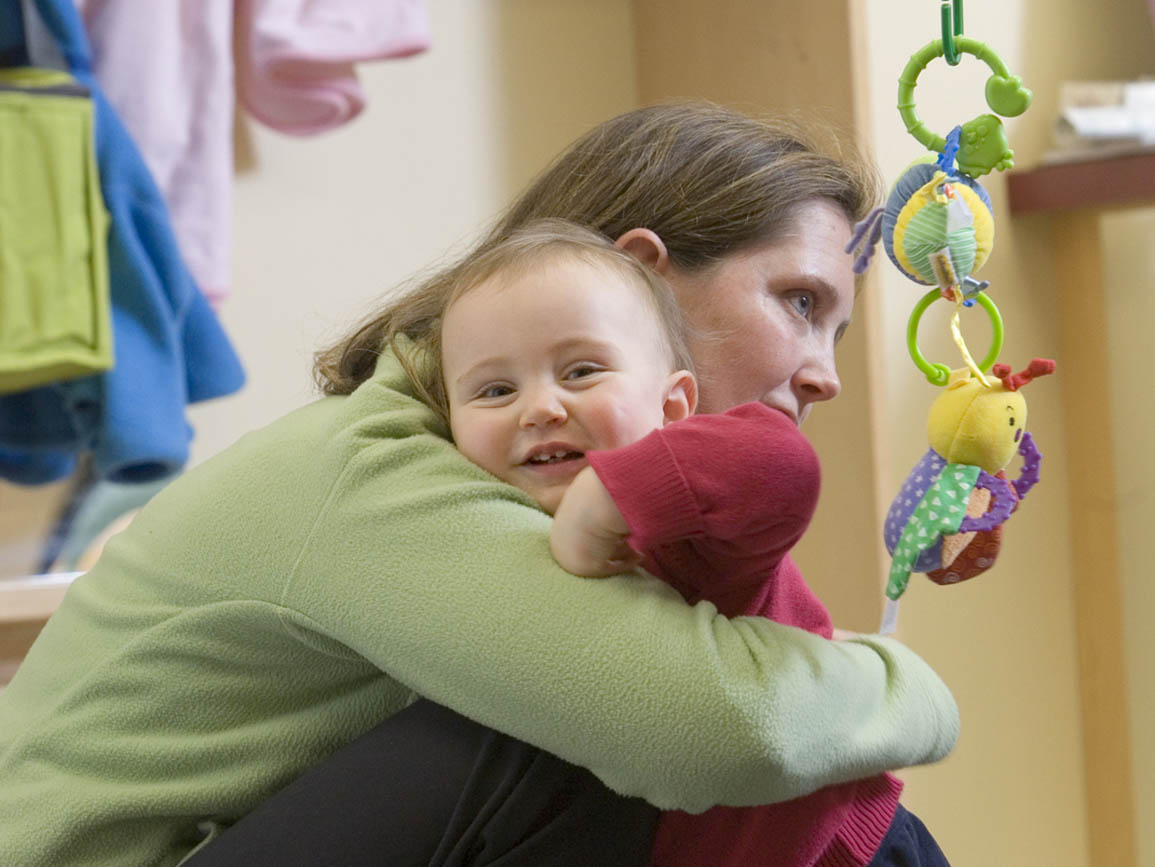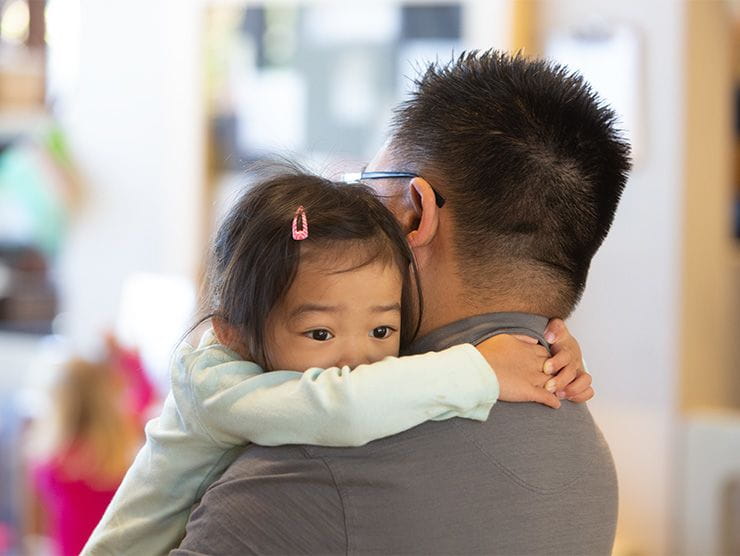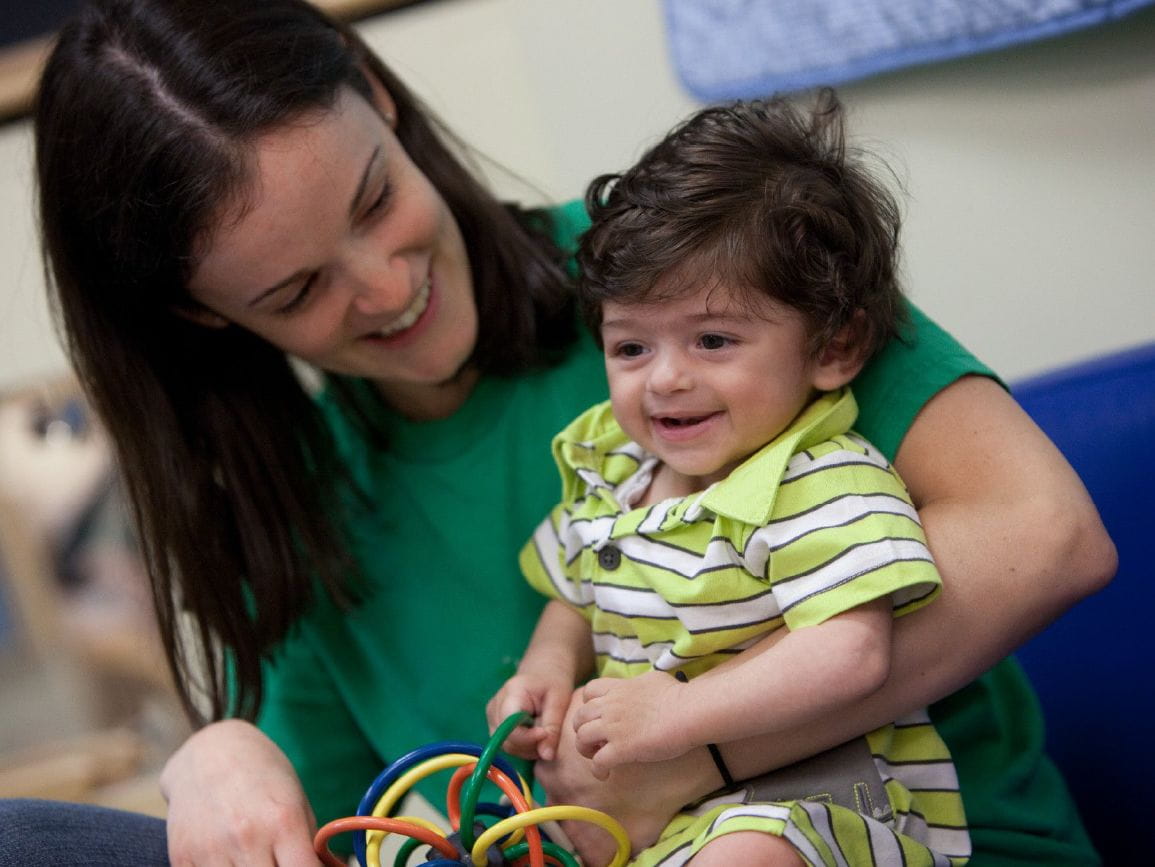It is fairly widely recognized that physical contact is important for infants. Many of us believe strongly in the power of skin-to-skin contact between a parent and a child in the first minutes, hours, and weeks after birth. Researchers, for example, have discovered that babies in neo-natal intensive care who may be in incubators or isolettes are healthier when they receive caring touch regularly. We also know that babies develop trust in their caregivers when they are picked up quickly when they cry. We know that you can't “spoil” babies. The more a baby knows she can trust us to meet her needs, the healthier, more trusting, alert, and alive the baby.
Touch stimulates healthy brain activity in infants. Sensory input (visual, auditory, smell, taste AND touch) helps make connections between nerve cells and positively affects emotional and intellectual development. The more these connections are activated, the more likely they are to become permanent. Later, the brain will go through a process of “pruning” the lesser used connections; so the more connections between nerve cells that are activated early on, the better.
And physical contact is a good way to do this. We all use a variety of gadgets to help us hold our children (like strollers, bouncy seats, swings, and carriers), but it is important to supplement these with actual contact.
Touch continues to be important even after the “baby” stage.
We know that attachment to a few key primary caregivers is important for toddlers to competently develop. One of the key contributors to developing secure attachments is warm and responsive care.
Toddlers use the adults they are securely attached to as a firm base for exploring. They will often go off and look at new objects, people, or environments, keeping their cherished adult in sight and frequently making physical contact (a hug and brief cling, for example) before going back out to explore some more. We know that exploration is a key way for young children to learn and having a safe physical base to explore from makes this possible.
On the other hand, concerns about inappropriate physical contact between adults and children sometimes leave adults feeling uncertain about offering children appropriate opportunities for physical contact. But depriving children of appropriate touch can be equally damaging.
Children need and thrive on hugs, sitting on an adult's lap, holding hands, snuggling up during book reading, or having an encircling arm comforting them when they are feeling sad. Research shows that some fathers pull back on physical contact as their daughters become preteens. But if appropriate touch had been part of the father-daughter relationship prior to the preteen years, pulling back on physical contact at this time can be confusing to the daughter and may create self-doubt. Similar scenarios may be true for all preteens and their parents.
Caring touch is important at all ages.
If you find yourself hesitant around offering your child caring touch, try reflecting back on how touch was handled when you were a child. Families are very different: some of us received a lot of caring touch, others not so much. And some of us unfortunately received inappropriate physical contact.
All of this affects how we handle touch with our children now. If you find yourself hesitant with appropriate touch, try stretching your comfort zone a little. Be open to your child's approaches to you. Pay attention to what your child is comfortable with and seems to be asking for. Most young children are looking for physical affection and will often initiate contact with you.
We always have to be respectful of each other's cultural and age differences. Some cultures are more or less comfortable with gentle, caring touch. It is important to know preferences when interacting with others who don't share your family's cultural background. And there are differences between touch with a toddler and touch with a school ager who should be able to say what he is and isn't comfortable with.
We know that the importance of physical contact continues even for adults. Many adults build regular opportunities for massage into their life, for example. For those with chronic illnesses, the need for human contact can be almost as important as the best of medical care for keeping one close and connected.
Caring, appropriate touch is one of the key needs of all human beings. It is sometimes taken for granted, but it is worthwhile to be thoughtful and purposeful around ensuring that our children have frequent opportunities for nurturing, loving touch in their lives.





